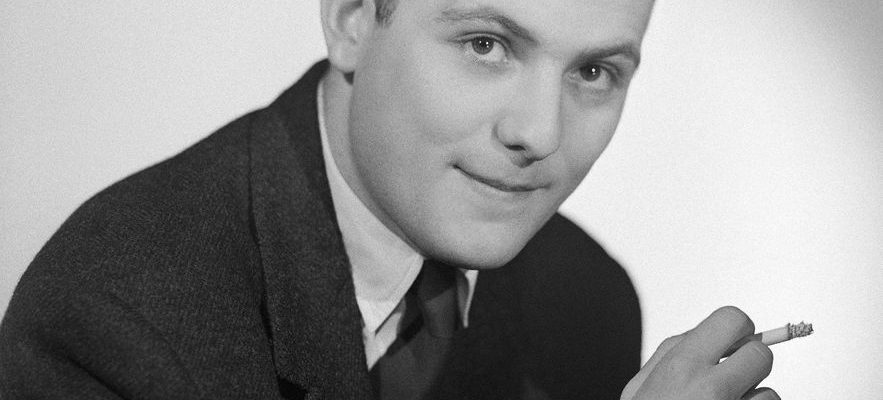[Philippe Sollers, grande figure de la littérature française, est décédé à l’âge de 86 ans ce samedi 6 mai 2023. Vingt ans plus tôt, en 2003, L’Express ressortait de ses archives, pour le numéro de ses 50 ans, cet article sur la découverte de l’écrivain, alors tout jeune, par François Mauriac. Le (re)voici.]
Here is my personal contribution to the “New Wave”. This 21-year-old boy, who is from Bordeaux, and whose name is Philippe, brings me his first book (1). This Philippe finds in my books the smell of the suburbs where, in 1936, he was born, teenagers who look like him and who suffer and become irritated in contact with the same fauna. He is close to me by his roots and, however old he lives, he will never forget, I believe, the light of that golden day, the year he was 19, when he first came to Malagar .
Nevertheless, the epigraph of the Challenge is by André Breton, and the book that Philippe read on the train between Bordeaux and Paris is The modification, whom he admires with despair because it seems to him that Michel Butor is pulling the rug out from under his feet. I’m not jealous of the authors he prefers. A work worthy of the name is always born at a confluence of readings, and a young person becomes aware of what he wishes to become.
Philippe offers this singular character, in a beginner of letters, of not thinking of it as a career. Francis Ponge is one of its great men. Philippe is in no hurry to write in the newspapers, nor to stir on the surface. The work to be written alone imposes itself on him. He doesn’t believe in recipes and if he has read everything that counts among his immediate elders, one could not be less docile to fashion. At the forefront, yes, but not at all costs.
Philippe Sollers during the publication of “Le Parc” by Éditions du Seuil, in Paris in 1961
© / afp.com/-
A few atrocious cries break out in The challenge, story of a love-illusion in an overly lucid boy who, after having subjected the young girl “to the hour of truth of pleasure”, remains frozen when she kills herself: “As I looked at the looks, I noticed that my silence was taken for an abyss of pain. It seems very touching to me.”
Let’s not shout at the monster. Philippe reassures us moreover in an afterword: Claire, the young girl of Challenge, has no carnal reality and embodies, it seems, the author’s adolescence. It is this part of himself that he rids himself of by sacrificing it… May he forgive me if I only feel half reassured. Claire, I think she’s more alive than he would like. Pleasure is homicidal, we all know that. And which of his elders would remind Philippe of him if not the one who, half a century ago, began the same journey as him, with the same hope in his heart?
He had left the same suburb where Philippe lives. The train had rumbled over the bridge over the Garonne. Bordeaux appeared for a moment in this stormy mist where the child-poet had thought he would suffocate… This drop of water from the oldest wave and this from the newest, how similar and yet different they are! Let’s put aside the too singular boy that I was and who represented only himself. But those who went up to Paris with me, in those first years of the century, Alexis Léger, Jacques Rivière, Jean de la Ville, so many others read masters who were called Barrès, Maurras, Péguy, Claudel, Romain Rolland… thought, art were engaged. Not that some of us weren’t already vaguely fascinated, as Philippe is, by this search for the absolute in language: Mallarmé, Rimbaud especially led them into it. Not that Earth Foods And The Immoralist were already key books for me. But intelligence was mobilized. There were imperatives that we did not discuss. The enormous mechanism had already been assembled which would methodically crush, over four years, a million and a half docile young Frenchmen. To which Philippe would doubtless reply that every generation remains exposed to being crushed, that the Minotaur is eternal, that his ration of fresh flesh has always been served to him: History is made of these meals, and that in the meantime, he There’s nothing else in the world, when you’re Philippe, than speak out. There will remain a few (always enough) to pray, to love, to give of themselves. Philippe is not a lamb.
So here is a boy of today, born in 1936. The author of Challenge is called Philippe Sollers. I would have been the first to write this name. Thirty-five pages to carry it is not much – it is enough. This pine bark which, as a child, I made a frail boat, and which I entrusted to the Hure which flowed at the bottom of our meadow, I believed that it would reach the sea. I still believe it.
(1) Thirty-five pages published by Editions du Seuil.
